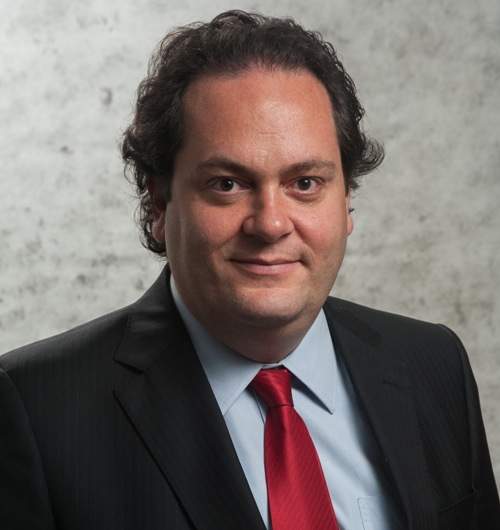
Itaú Private Bank has benefited from wealthy Brazilians’ move to offshore investing following political and economic uncertainty in Brazil. One of private bank’s main objectives is to increase its Latam offshore clients and build new partnerships to expand its product offering, especially in alternative investments. Robin Arnfield reports
Headquartered in São Paulo, Brazil, Itaú Private Bank has offices in eight other countries including the US, Switzerland, Argentina, Chile, Paraguay and the Bahamas, with its main foreign centres being Miami and Zurich.
In 2016, Itaú completed its 2014 acquisition of Chile’s CorpBanca which has an operation in Colombia. However, in 2016 Itaú sold its Mexican brokerage business to an undisclosed local buyer.
In recent years, several global banks have exited from, or reduced their involvement, with the Latin American private banking market.
HSBC sold its Brazilian business in 2015 to Bradesco, while Deutsche Bank closed operations in Argentina, Chile, Mexico, Uruguay and Peru, and Barclays sold its Latin American wealth and investment management services to Spain’s Santander in 2013.
This trend has provided an opportunity for domestic Latin American banks such as Itaú Private Bank which have a local presence in individual countries across the region.
“Currently, our total AUM is around US$103bn,” an Itaú Private Bank spokesperson tells Private Banker International (PBI).
“This comprises $83bn in Brazil and $20bn in offshore investments – $12bn in Miami and $8bn in Zurich. We estimate we’re among the top three banks for Brazilian offshore investments, with a market share of around 8% to 10%. We’re targeting to lead this market in five years, reaching a 15% market share.”
In Brazil, in terms of onshore investments, Itaú has a 28% market share, the spokesperson says.
Strong Miami business
Itaú opened its Miami office in 2007 following its acquisition of the Miami private banking portfolios of BankBoston International and ABN Amro. The operation provides offshore banking services to Latin American clients but not to US citizens.
Carlos Constantini, head of international private banking at Itaú, told Bloomberg in July 2017 that the bank’s Miami business was booming because of the political scandals and economic problems in Brazil.
“In July 2017, we completed 10 years of operating our international private banking unit in Miami,” the Itaú spokesperson tells PBI. “During this period, we increased our AUM in Miami by 400%. In terms of drivers, one of our main objectives is to increase our Latam offshore clients and to build new partnerships to expand our product offering, especially in alternative investments.”
Miami is a popular residential destination for HNWIs from Latin America, and its offshore private banking market is becoming increasingly competitive. Last year, for example, Morgan Stanley opened its third Miami office to cater for Latin American HNWIs.
Client segments
Asked to describe Itaú Private Bank’s various target client segments across the Latin American region and its Miami operation, Carlos Constantini, head of Itaú’s international private banking, says
“Itau Private Bank, represented by its units in Miami and Zurich, offers financial solutions for different private client segments.
“The majority of our clients are considered high net worth individuals, with account balances above USD1MM, and total net worth multiple times this amount. The majority of our assets in custody belong to Ultra High Net Worth individuals, with account account balances above USD10MM.
“We also offer an exclusive service to clients with assets above USD50MM through our Itau Family Office, who acts as an investment advisor for assets held worldwide, including other financial institutions. Lastly, Itau offers services to Multi-family offices through a dedicated platform that aims to facilitate transactions for these institutions.”

Above: Carlos Constantini, head of Itaú’s international private banking,
Constantini says Itaú Private Bank does not segment clients based on source of wealth, as the majority of its clients are business owners, but it has different solutions based on clients’ need for advice. “Our advisory continuum covers clients who seek full discretionary mandates, all the way to self-directed clients, who look mostly for flawless execution.”
Discretionary focus
In terms of the investment products offered to clients, Constantini says the private bank has been investing heavily in discretionary solutions, which complements its advisory offering.
“Our offering covers traditional asset classes, and we have also seen and increased interest in alternative investments (Hedge Funds, Private Equity and Real Estate). Finally, we have professionals that create individualized solutions to reflect specific views of different markets, through our derivatives and structured notes offering,” says Constantini.
Commenting on notable trends among its clients and in the markets Itau Private Bank, Roberto Martins, Itaú Private Bank’s chief investment officer notes that Latin America has seen several rounds of repatriation or amnesty events for a couple of years now.
Martins says: “Countries like Chile, Brazil and Argentina have provided incentives for investors to come forth and report their financial assets in different ways. As a consequence, we have seen clients with more freedom to move their assets, and look for institutions that provide the highest levels of service, transparency and results.
“We believe we are net beneficiaries of such movements, and an important part of our recent growth has come from clients seeking better solutions for their wealth.”
Martins adds: “We have also observed trends that are being reported by other institutions, such as the need for modern approaches to investing (passive versus active, factor investing, alternative and thematic investments), and the exponential demand for transparency and fiduciary standards.”







